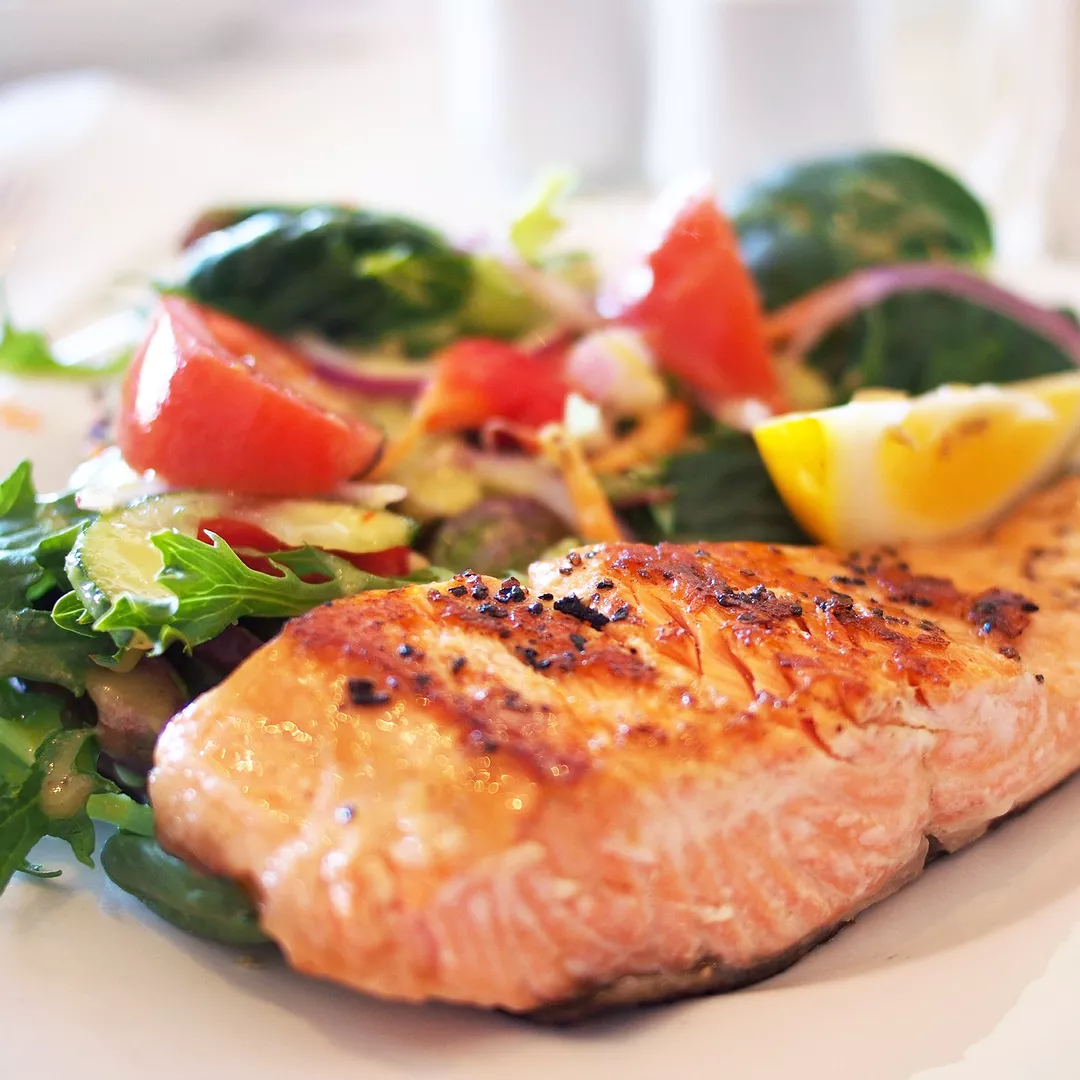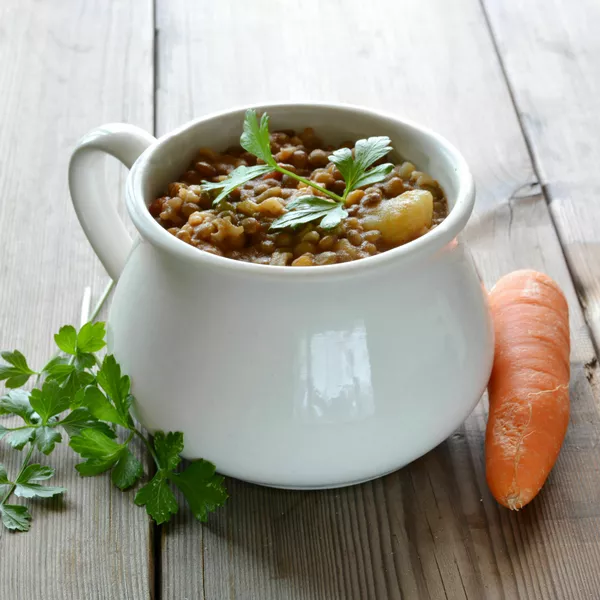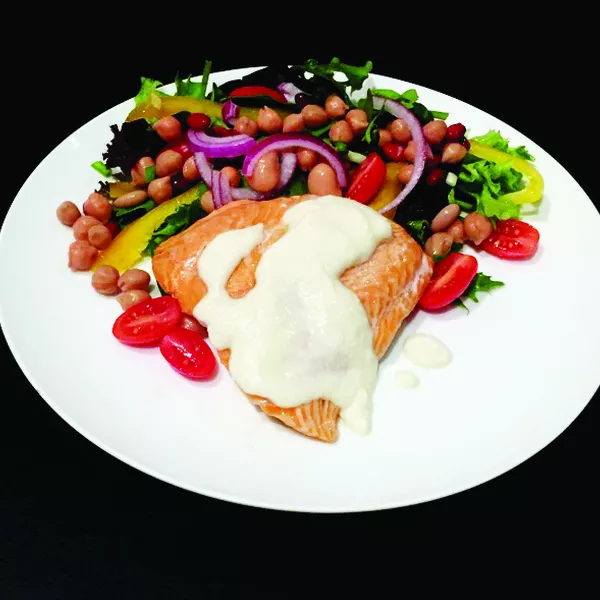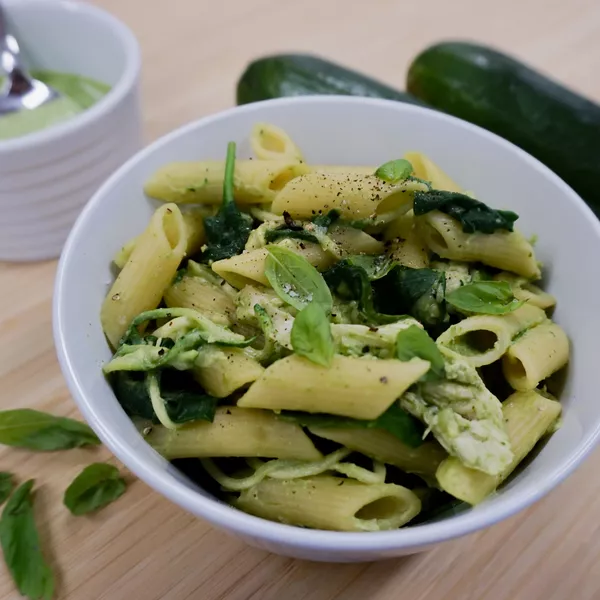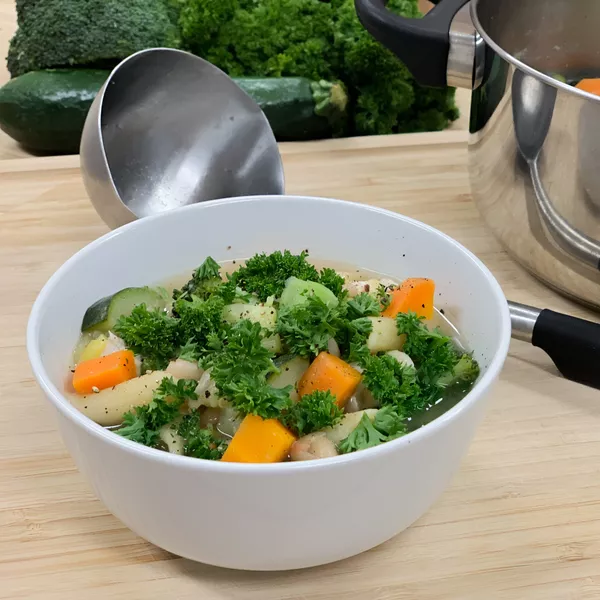
The body converts omega-3 into other chemicals, which have anti-inflammatory properties in the body. These anti-inflammatory chemicals may help reduce blood pressure, reduce blood clotting, protect against irregular heartbeats and reduce chronic inflammation - all important factors for long-term heart health. Oily fish such as tuna and salmon are the best source of omega-3 fatty acids.
Ingredients
Directions
-
Step 1
Cut the salad ingredients, then fill half of each plate. Top with the avocado.
-
Step 2
For the dressing, mix sour cream, lemon juice and mustard in a small container. Set aside.
-
Step 3
Heat the olive oil in a non-stick pan over low heat. Sprinkle one side of each salmon fillet with sesame seeds and place the salmon, sesame seed side down, into the pan. Cook slowly on low heat for 5–6 minutes or until the sesame seeds are golden. Do not overcook, as the sesame seeds will taste bitter. Turn the salmon; cook the other side for a further 3–4 minutes or to your liking.
-
Step 4
Serve up the salmon next to the salad and drizzle with the dressing.
Details
- Serves
- 2
- Preparation Time
- 7 mins
- Cooking Time
- 20 mins
Nutrition
- Energy
- 1,946 kJ (465 calories)
- Saturated Fat
- 8 g
- Protein
- 34 g
- Carbohydrates
- 6 g
About the author
The Healthy Eating Hub
The Healthy Eating Hub is a team of university qualified nutritionists and dietitians who are passionate about helping people develop long term healthy eating habits through offering evidenced-based and practical nutrition advice that people can put into practice straight away.

